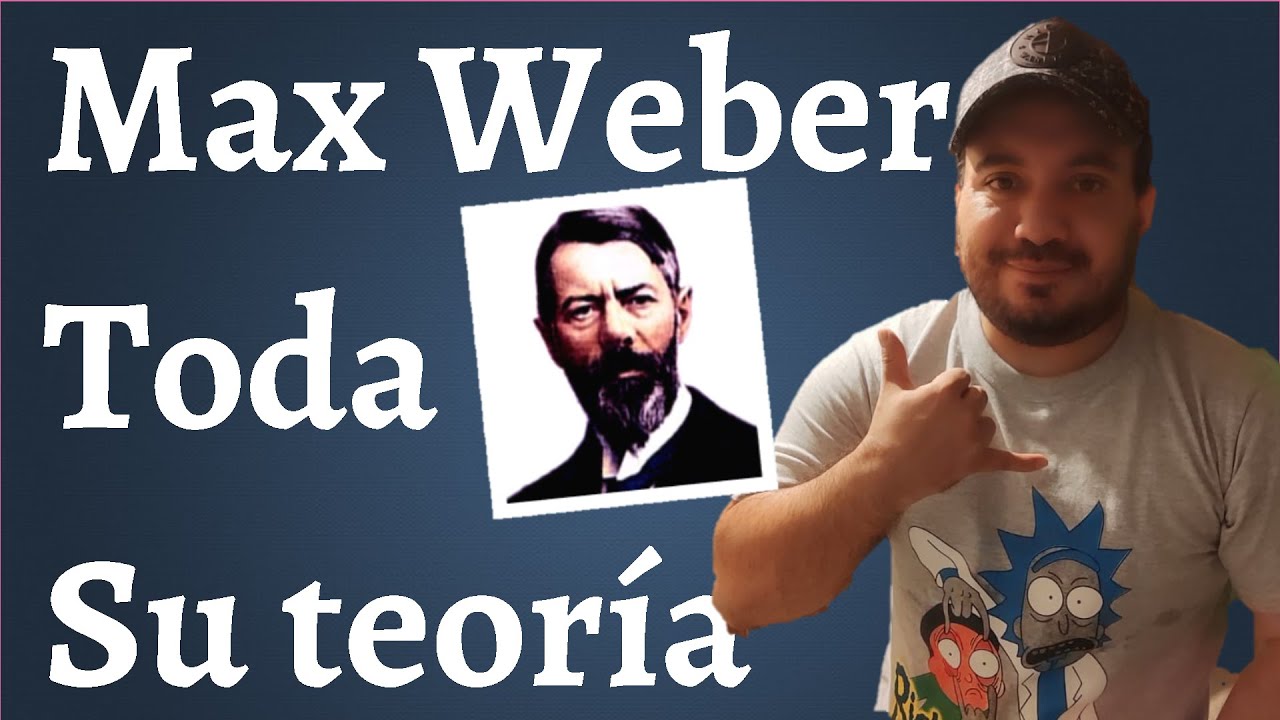Apa itu Birokrasi dan Siapa Max Weber - Penjelasan Singkat dan Jelas
Summary
TLDRThis video delves into Max Weber's contributions to sociology, focusing on his ideas about rationalization, authority, and bureaucracy. Weber's concept of rational-legal authority, contrasted with traditional and charismatic forms, is central to his theory. He introduces nine principles of bureaucracy, emphasizing structure, merit-based recruitment, and accountability. The discussion also critiques Indonesia's bureaucratic system, questioning whether it is overly influenced by traditional and charismatic values rather than rational-legal principles. The video urges a closer look at Weber's principles to improve governance and bureaucratic effectiveness in Indonesia.
Takeaways
- 😀 Max Weber was a German sociologist and philosopher, known for his work on rationalization and bureaucracy.
- 😀 Weber emphasized that decisions and management should be based on rational principles rather than religious or traditional values.
- 😀 Weber identified three main sources of authority: traditional, charismatic, and rational-legal authority.
- 😀 According to Weber, modern societies should adopt rational-legal authority to govern effectively and efficiently.
- 😀 Weber's book *Economy and Society* discusses how authority should be grounded in rational-legal principles.
- 😀 Weber proposed nine key principles of bureaucracy, including specialized roles, merit-based recruitment, and uniform procedures.
- 😀 The nine principles of bureaucracy also include systematic career management, delegation of responsibility, and strict discipline.
- 😀 Bureaucracy requires political neutrality, meaning officials must remain unbiased and not use their positions for political gain.
- 😀 The lecture raised the question of whether Indonesia is too bureaucratic, with traditional and charismatic authority still prevalent in the government.
- 😀 In Indonesia, authority is often based on tradition (e.g., political lineage) or charisma, which contrasts with Weber's rational-legal model.
- 😀 The challenge for Indonesia is the proper application of Weber's bureaucratic principles, which may not always align with the country’s cultural and historical practices.
Q & A
Who is Max Weber and what is his contribution to management thinking?
-Max Weber was a German sociologist and philosopher, known for his focus on rationalization in society and management. He believed that all decision-making and management should be based on rational principles, which led him to develop the concept of bureaucracy as an ideal organizational structure.
What is the central idea behind Max Weber's philosophy?
-Max Weber's central idea revolves around rationalization, where he emphasized that decisions and management should be based on rational thought rather than traditional or charismatic authority, which sometimes conflicted with religious values during his time in Europe.
What are the three sources of authority according to Max Weber?
-According to Max Weber, authority can stem from three sources: traditional values (e.g., authority based on age or lineage), charisma (e.g., leadership based on personal qualities or influence), and rational-legal authority (e.g., authority based on laws and regulations).
What is Weber's ideal model of bureaucracy, and what are its key principles?
-Weber's ideal bureaucracy model is based on nine principles: specialization of roles, merit-based recruitment, uniform procedures for promotion, systematic career management, responsibility and accountability, adherence to strict rules and discipline, impersonal authority, legal authority over personal branding, and political neutrality.
How does Weber’s model of bureaucracy apply to modern societies?
-Weber’s bureaucratic model applies to modern societies by emphasizing that governance and administration should be based on rational and legal principles, ensuring fairness, efficiency, and accountability in public and organizational structures.
Why does the script question whether Indonesia is too bureaucratic?
-The script questions whether Indonesia is too bureaucratic because, although bureaucracy is a rational approach, the Indonesian government often relies on traditional values or charismatic leadership rather than the ideal rational-legal authority that Weber proposed.
What are some examples of traditional values and charisma influencing leadership in Indonesia?
-In Indonesia, leadership is sometimes influenced by traditional values, such as choosing leaders based on lineage or descent from former rulers. Charisma also plays a role, where individuals with personal appeal, like popular celebrities, may be chosen for leadership roles despite lacking a clear track record.
What challenges are posed by applying Weber’s bureaucratic principles in Indonesia?
-The challenges include the gap between Weber’s ideal bureaucratic principles and the actual practices in Indonesia, where traditional and charismatic forms of authority are still prevalent. This creates a mismatch in implementing rational-legal authority as Weber envisioned.
What is the significance of 'rational-legal' authority in Weber’s theory?
-'Rational-legal' authority is central to Weber’s theory as it refers to authority that is based on established laws, regulations, and procedures. This type of authority is impersonal and ensures that decisions are made objectively, based on rules rather than personal influence or tradition.
What is the purpose of discussing bureaucracy in relation to Indonesia’s governance in the script?
-The purpose is to evaluate whether the bureaucratic system in Indonesia is functioning as intended or if it is hindered by traditional and charismatic influences. The discussion aims to highlight that while Weber’s ideal bureaucracy could improve governance, the real-world implementation often falls short.
Outlines

This section is available to paid users only. Please upgrade to access this part.
Upgrade NowMindmap

This section is available to paid users only. Please upgrade to access this part.
Upgrade NowKeywords

This section is available to paid users only. Please upgrade to access this part.
Upgrade NowHighlights

This section is available to paid users only. Please upgrade to access this part.
Upgrade NowTranscripts

This section is available to paid users only. Please upgrade to access this part.
Upgrade Now5.0 / 5 (0 votes)





